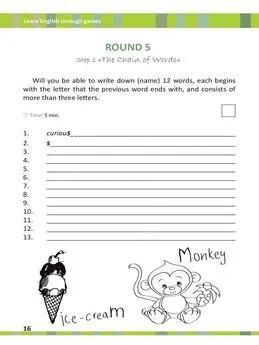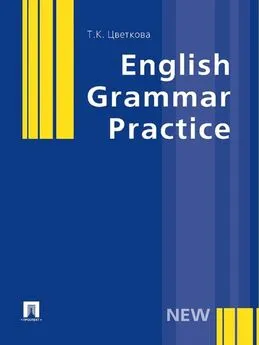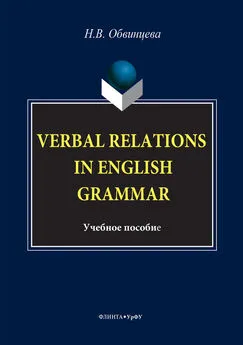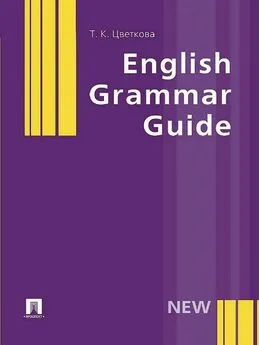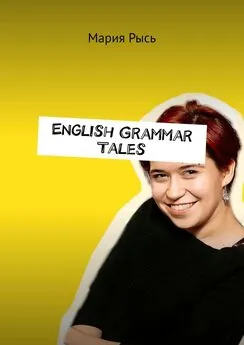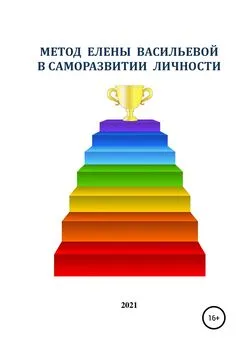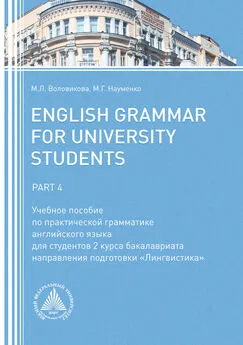Елена Васильева - English grammar: 100 main rules
- Название:English grammar: 100 main rules
- Автор:
- Жанр:
- Издательство:Литагент Проспект (без drm)
- Год:2014
- ISBN:9785392161621
- Рейтинг:
- Избранное:Добавить в избранное
-
Отзывы:
-
Ваша оценка:
Елена Васильева - English grammar: 100 main rules краткое содержание
English grammar: 100 main rules - читать онлайн бесплатно ознакомительный отрывок
Интервал:
Закладка:
What are the least prestigious jobs?
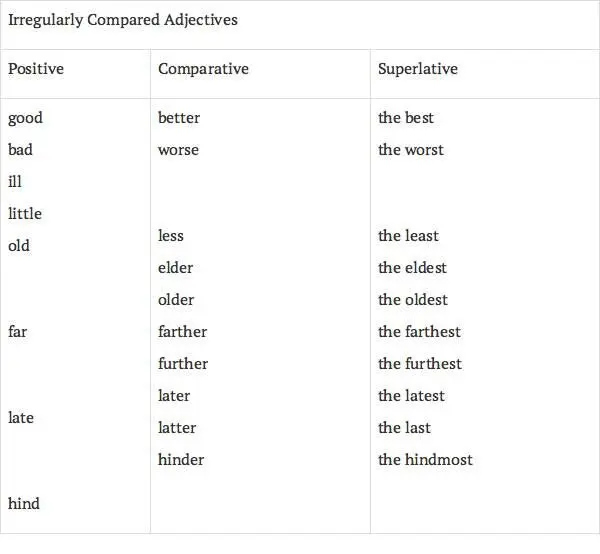
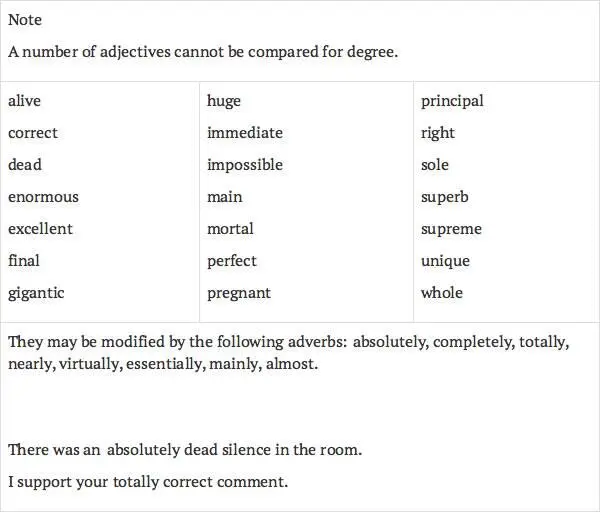
Substantivized Adjectives
the + adjective
1) substantivized adjectives denote a whole class of persons characterized by a specific feature. In most cases such adjectives agree with a plural verb.
the elderly, the handicapped, the lonely, the needy
Olivia's aunt works in school for the blind.
The rich also cry.
2) substantivized adjectives may as well refer to the whole nation.
the Japanese, the English, the Dutch
The ancient Chinese first invented paper.
The Welsh try to preserve their language and culture.
3) A number of substantivized adjectives even take the plural ending – s,which let them pass into the category of nouns.
the marines, the moderns, the nobles, the regulars, the Russians
The Conservatives are leading in the polls.
If you want to see the true measure of a man, watch how he treats his inferiors, not his equals.
4) substantivized adjectives indicate abstract notions. such adjectives agree with a singular verb.
the future, the past, the present, the plural, the singular, the unknown, the unreal, the variable, the visible
The obvious is fabulous, but the fabulous is obvious.
You should use the Future Simple in this sentence.
Syntactic Functions of Adjectives
1. Attribute
We liked that warm meeting.
I hear some pleasant music.
Note
There is a particular order for adjectives to describe a noun.
Opinion – Size– Shape– Colour– Pattern– Age
– Origin– Material– Purpose+ Noun
a clever young British professor
two nice tiny round black old metal musical boxes
that beautiful swift white new sailing boat
2. Predicate
The meeting was warm.
Your mother looks sad.
I feel good about the offer.
A predicate adjective follows a linking verb (to be, to seem, to appear, to look, to taste, to smell, to feel, to sound),but it refers to the subject of the sentence.
3. Subjectand Object(Substantivized adjectives)
The unemployed demanded concrete programs of public works.
The young should help the old.
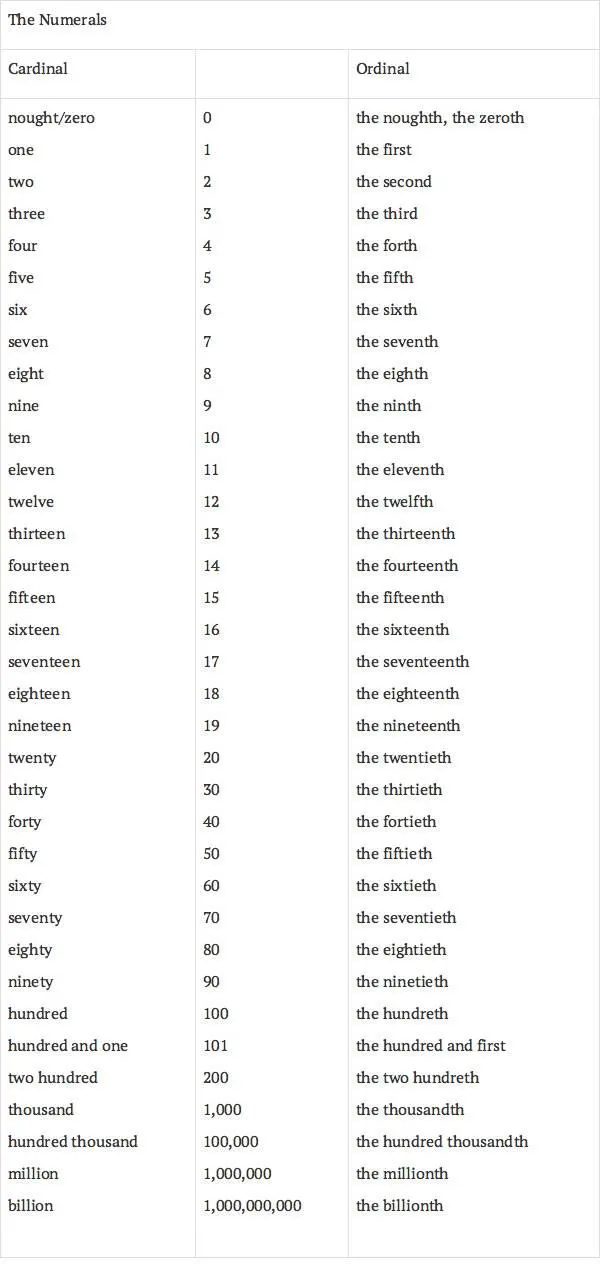
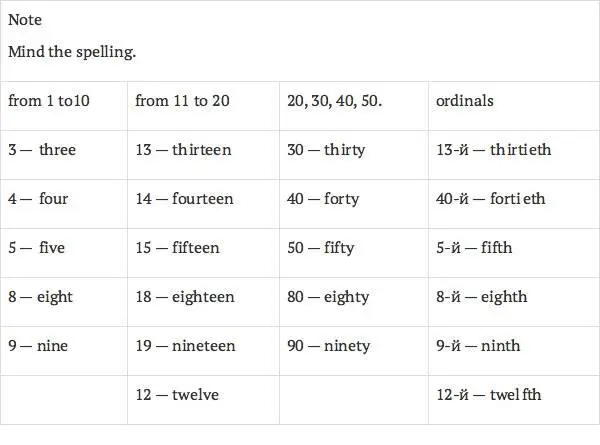
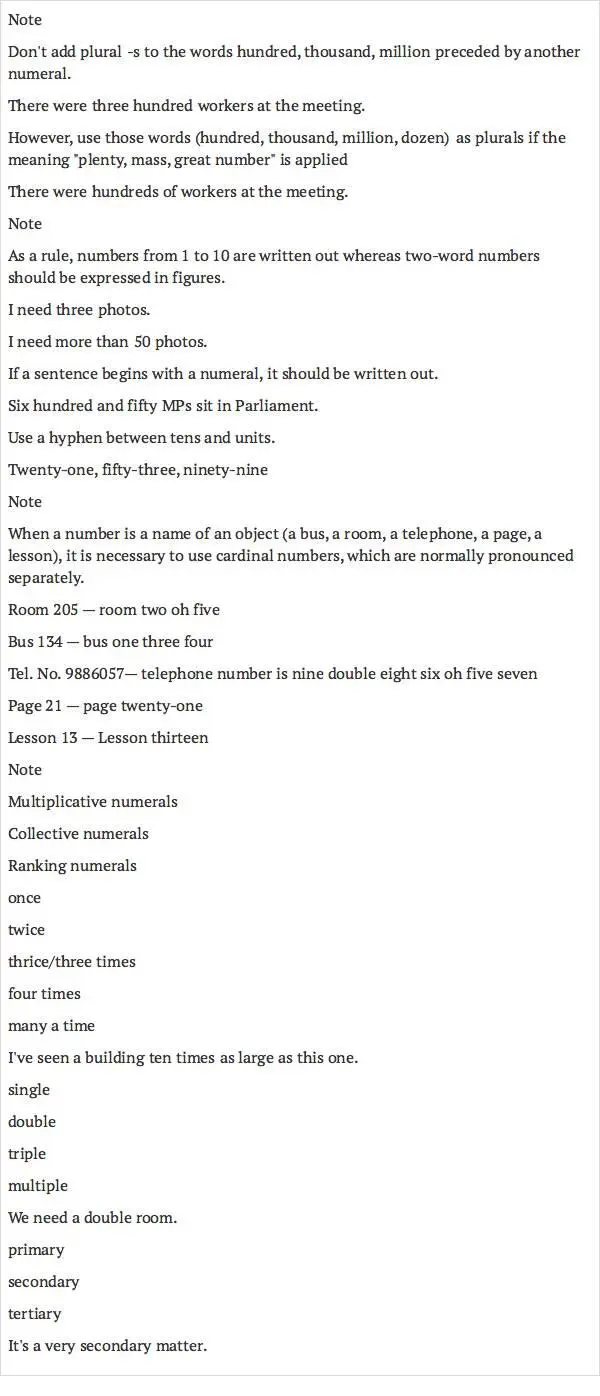
Fractional Numerals
Common fraction
The numerator is a cardinal number; the denominator is an ordinal number.
1/2 – one (a) half
1/3 – one (a) third
1/4 – one (a) quarter
1/5 – one (a) fifth
1/6 – one (a) sixth
If the numenator is more than one, then the denominator is used in plural.
2/3 – two thirds
3/4 – three quarters
5/6 – five sixths
Decimal fraction
Each digit is pronounced separately.
25. 105 – two five point one nought five
0.746 – nought point seven four six
Operations with Numerals
1. Addition
1+2=3 – one plus two is (equals) three; 1, 2 – the addends, 3 – the sum
2. Subtraction
3–2=1 – three minus two is (makes) one; 3 – the minuend, 2 – the subtrahend, 1 – the difference
3. Multiplication
3*2=6 – three multiplied by two/twice three is six; 3 – the multiplicand, 2 – the multiplier, 6 – the product
4. Division
6:2=3 – six divided by two is three; 6 – the dividend, 2 – the divisor, 3 – the quotient
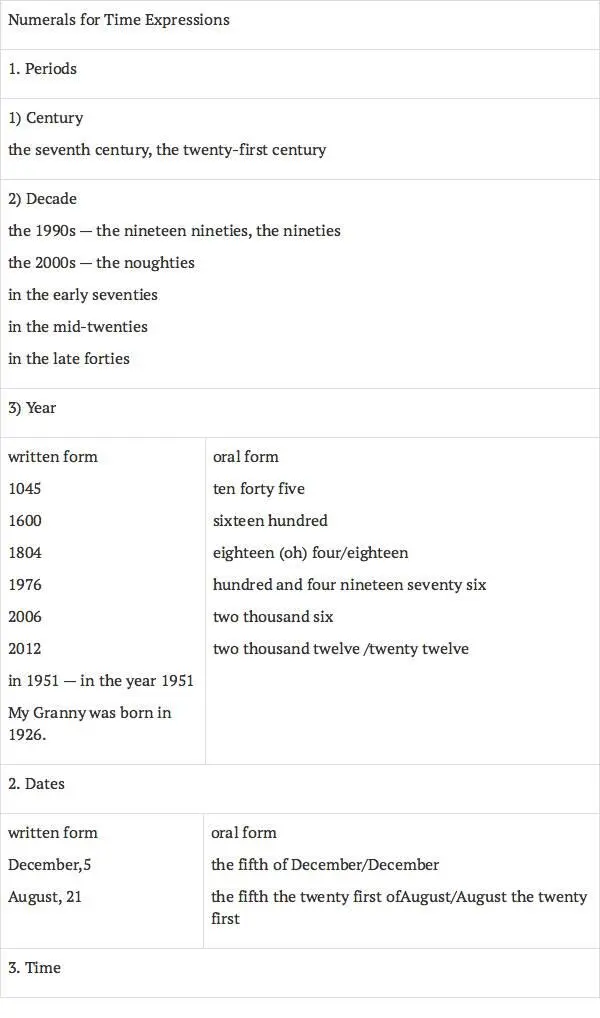
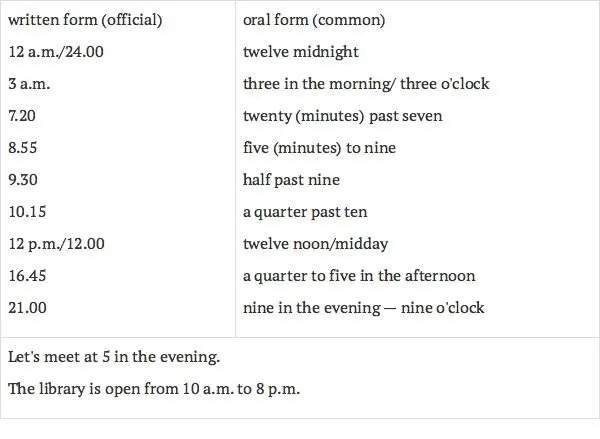
Syntactical Functions of Numerals
1. Attribute
Do you know the seven wonders? This is Andrew's third trip abroad.
2. Subject
Four of them didn't join us.
2004, 2008 and 2012 are leap years.
3. Predicative
They were the first.
It's five o'clock.
4. Object
How many apples has he eaten? He's eaten three.
Show me those two, please.
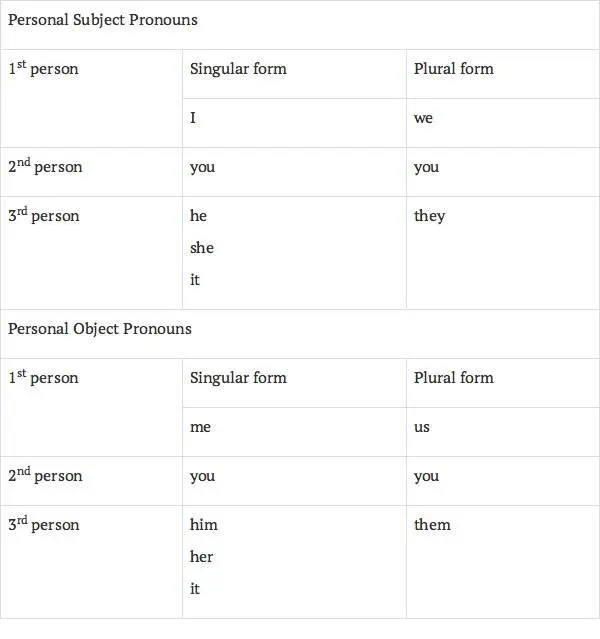
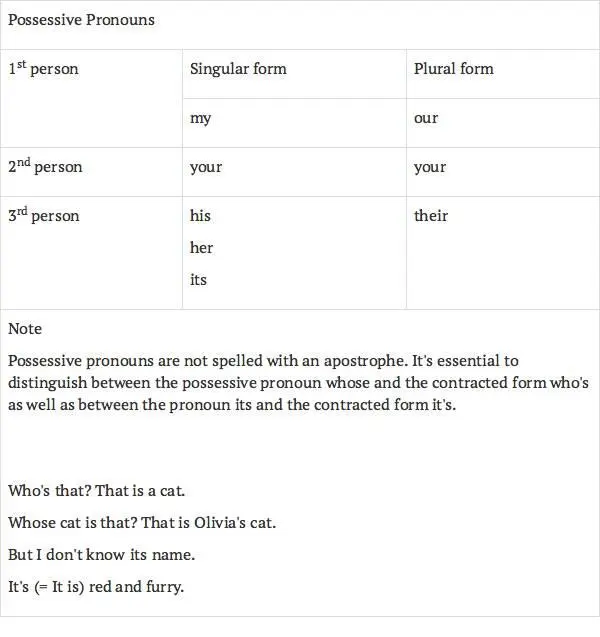
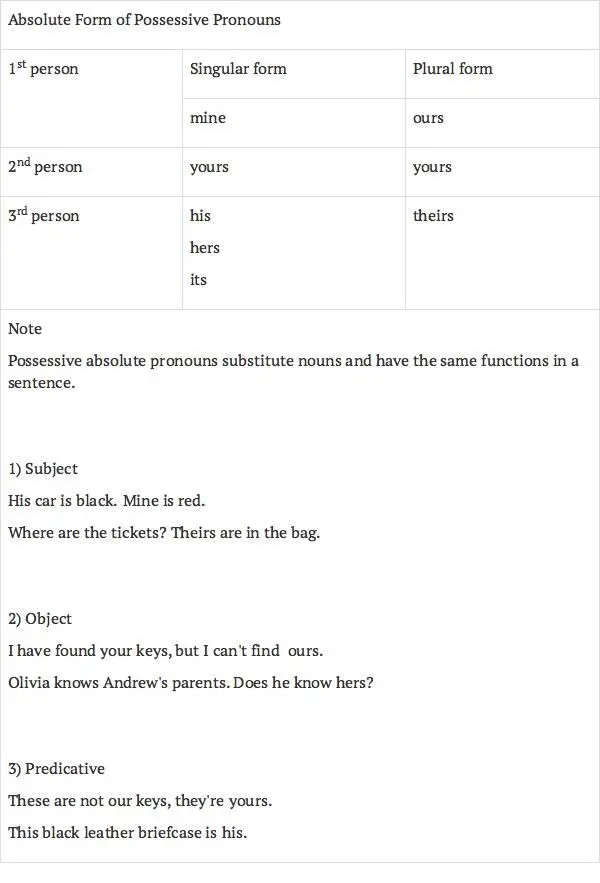
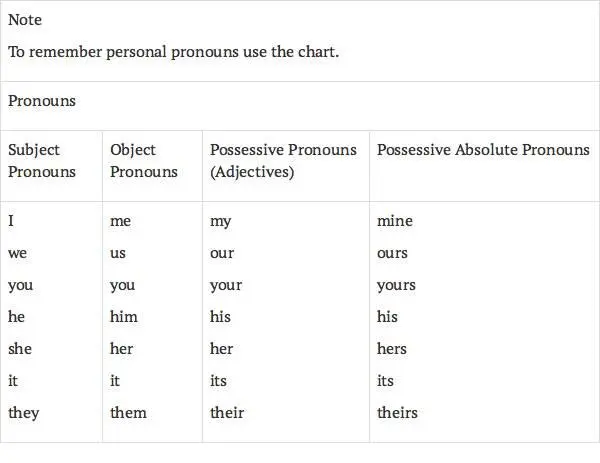
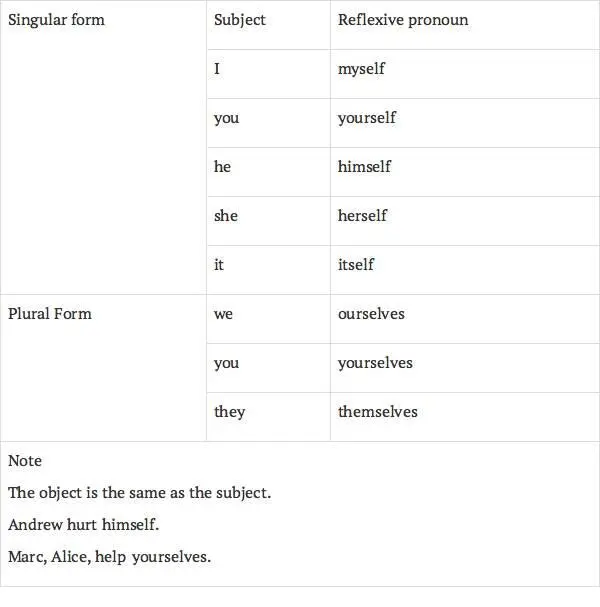
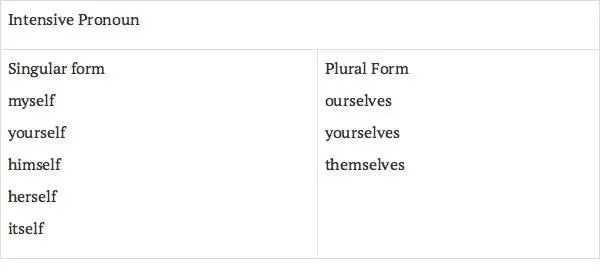
Note
Intensive pronouns do not substitute nouns, but intensify their meaning.
You must make that choice yourself.
Andrew repaired the bike himsel f.
We want to go there ourselves.
Demonstrative Pronouns
Demonstrative pronouns point to a certain object or person that can be either near or far in distance or time.
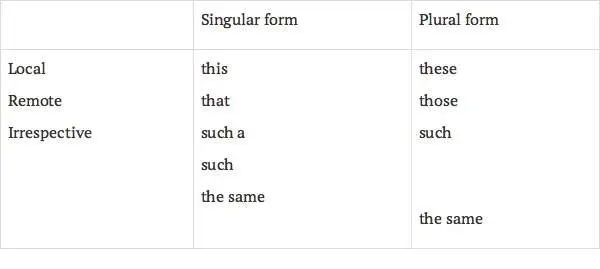
Note
1) Attribute
This situation is incredible.
We met that man on the station.
Would you quit your job under these circumstances?
Those shoes were so cute!
That girl has such a voice!
Such rules usually take effect.
They work at the same department.
Why are you asking me the very same questions?
It's possible to use demonstrative pronouns before the word one.
These apples are sweeter than those ones.
Andrew is an intelligent young man. Yes, he is such one.
That's the same one I've been looking for!
The demostrative pronoun may be positioned before the adjective that refers to the same noun.
This pretty girl is my sister.
What are these strange conclusions?
It's such a wonderful life.
It's always the same old story.
2) The demonstrative pronoun can also be used in place of nouns.
– Subject
This must not continue.
Those were the days.
– Object
Will you take this?
Don't tell them that.
Andrew can't work with those.
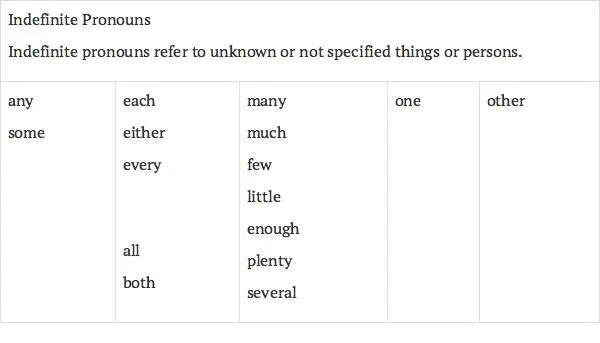
some
– statements
I need some information about language courses.
Some of the m istakes were silly.
– offers and suggestions
Would you like some tea?
Shall I bring some refreshments?
– requests
Where can I get some paper?
Could you give us some examples?
Читать дальшеИнтервал:
Закладка:

